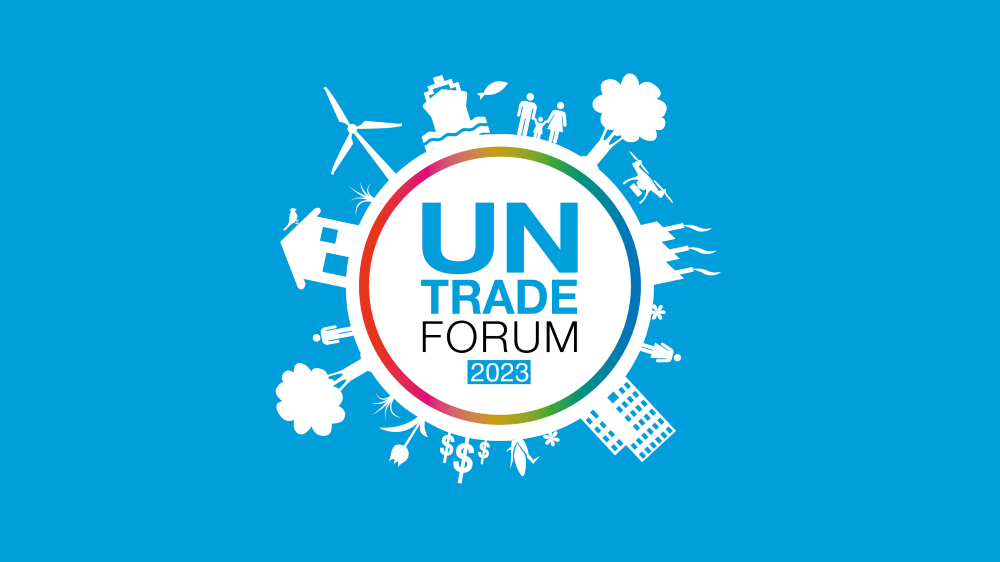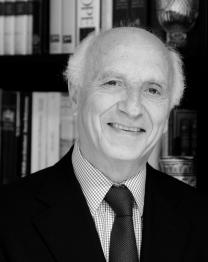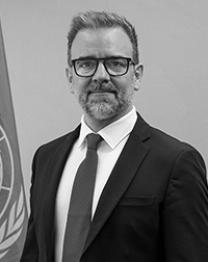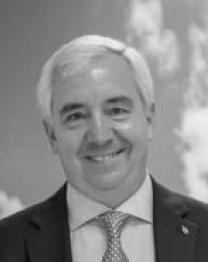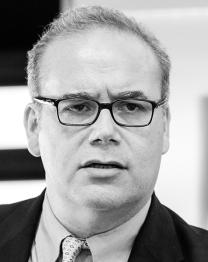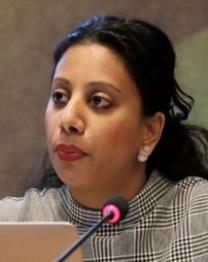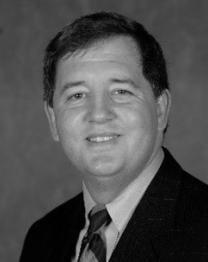South-South trade has incredible potential to accelerate the achievement of the SDGs by developing countries. Its value passed from US$600 billion in 1995 to US$5.3 trillion in 2021 and its volume is now higher than that of North-South trade, growing faster than the world average. In addition, South-South trade fosters trade in non-traditional exports, including higher value added and technology-intensive manufactured goods.
In this framework, the Global System of Trade Preferences (GSTP) represents a great opportunity for developing countries to increase South-South trade and cooperation by reducing trade barriers (both tariff and non-tariff) and diversify their exports. In fact, this is the only trade agreement covering the Global South, currently encompassing 42 countries, forming a US$16 trillion market with a population of 4 billion. UNCTAD estimates suggest that implementation of the latest round of negotiations of the GSTP by all its current signatories would result in potential shared welfare gains of US$14 billion.
Within the current context of multiple crises, the GSTP provides an incredibly valuable platform to address challenges such as climate crisis and food security through trade cooperation. Despite the little historical responsibility of CO2 emissions of developing countries, these are the countries that are feeling the impact of climate change the most, both financially and in terms of human lives. A revival of the GSTP offers an opportunity for a wide sectoral decarbonization in developing countries. Addressing renewable energy-related goods and services trade and related NTMs among GSTP participants would allow a faster renewable energy transition and would help countries meet the National Determined Contribution under the Paris Agreement.
There is now a fresh window of opportunity for breaking the logjam in the implementation of the past negotiating results and moving ahead to embark on a new South-South trade agenda. Within the current context of “polycrisis”, the GSTP provides a vehicle to address pressing global challenges through trade cooperation to accelerate the achievement of SDGs. What is the role of South-South trade on the path for sustainable development? How can the GSTP be better utilized to enable further trade and economic integration among developing countries? In which policy areas or sectors can trade cooperation be strengthened in a manner supportive of the achievement of SDGs?
Keynote
Global System of Trade Preferences (GSTP) among developing countries in accelerating SDGs in the current global context
- Mr. Rubens Ricupero, former UNCTAD Secretary-General (video)
Moderator
- Mr. Pedro Manuel Moreno, Deputy Secretary-General of UNCTAD
Commentators
- H.E. Mr. Federico Villegas, President of the GSTP Committee of Participants, Ambassador Extraordinary and Plenipotentiary, Permanent Representative of the Permanent Mission of the Argentine Republic to the United Nations Office and other international organizations in Geneva
- Ms. Miho Shirotori, Acting Director, Division on International Trade and Commodities (DITC),UNCTAD
- Mr. Máximo Torero, Chief Economist, Food and Agriculture Organization (FAO)
- Ms. Trudi Hartzenberg, Executive Director, tralac, and Member of the UN Committee on Trade Policy
- Ms. Vahini Naidu, Programme Coordinator, Trade for Development Programme, South Centre
- Mr. Craig VanGrasstek, Trade Consultant and Adjunct Lecturer, John F. Kennedy School of Government, Harvard University
Watch the session on UN Web TV
Rubens Ricupero, currently in charge of the José Bonifácio Chair of Ibero-American Studies at the University of São Paulo, was from l995 to 2004, the Secretary-General of the United Nations Conference on Trade and Development (UNCTAD), in Geneva. Before that, he had been Minister of Finance of Brazil (1994), succeeding Fernando Henrique Cardoso. In 1993-94, Rubens Ricupero was Brazil’s Minister of the Environment and Amazonian Affairs, an area where he had accumulated experience as the Chairman of the Negotiation Group on Finance, during the United Nations Conference on Environment and Development, the Rio Climate Summit, in 1992, in Rio de Janeiro.
For several decades, he has been associated with international trade negotiations, as the chief Brazilian negotiator during most of the duration of the Uruguay Round of the GATT (1987-1991).
In Presidents Tancredo Neves-José Sarney’s Administration, he was Deputy-Chief of the Presidential staff and Special Adviser to the President (1985-1987).
For 36 years, he was a career diplomat, reaching the posts of Secretary for Inter-American Affairs, at Brazil’s Ministry of Foreign Relations.
He represented Brazil as Ambassador at the GATT and the United Nations Organization, Geneva (1987-1991), Ambassador to the United States of America (1991-1993) and Ambassador to Italy (1995).
Rubens Ricupero was born in São Paulo on March 1st, 1937, and he studied Law at the University of São Paulo. He was a Professor of Theory of International Relations at the University of Brasilia and of History of Brazilian Diplomatic Relations at the Rio Branco Institute, the Brazilian Diplomatic Academy. He published several books and articles on international trade, development issues and international relations. His most recent book is A Diplomacia na Construção do Brasil 1750-2016 (2017), a history of Brazilian diplomacy and foreign policy, awarded the José Ermirio de Moraes Prize by the Brazilian Academy of Letters.
Mr. Pedro Manuel Moreno of Spain, is Deputy Secretary-General of UNCTAD.
He has over 20 years of experience of working for multilateral and intergovernmental organizations in programme, management and strategic positions both in the field and at headquarters.
He was Deputy Secretary-General of the Communication for Development Committee at the Spanish National Commission with the United Nations Educational, Scientific and Cultural Organization (1999-2004), and for the United Nations Development Programme, at the Country Office in Ecuador and, in New York City, as part of the Human Development Report team, at the Regional Bureau for Latin America and the Caribbean and at the Executive Office.
In 2014, he was appointed Chief of Staff of the Ibero-American Conference in Madrid, where he coordinated key political processes and South-South cooperation projects.
In September 2021, he was named Chief of Staff and Director of the Office of the Secretary-General of UNCTAD.
Federico Villegas is the Permanent Representative of Argentina to the United Nations Office at Geneva, since 2020. Prior to his arrival in Geneva, Mr. Villegas had been serving as Argentina’s Ambassador to Mozambique until 2016. He served as the Director General of Human Rights at the Ministry of Foreign Affairs of Argentina from 2012 to 2016, and from 2005 to 2007. He was Argentina’s Alternate Representative to the Southern Common Market MERCOSUR and the Association for Latin-American Integration ALADI in Montevideo, Uruguay from 2008 to 2011.
A career diplomat, Mr. Villegas joined Argentina's Foreign Service in 1993. He was Deputy Director General of Human Rights at the Ministry in 2003 and 2004, and Argentina’s Alternate Representative to the Organization of American States in Washington DC from 1995 to 2003. He also served at the Directorate of International Security, Nuclear and Space Affairs at the Ministry of Foreign Affairs from 1993 to 1995.
Mr. Villegas has a Master of Arts in liberal studies from Georgetown University, Washington DC (1998). He graduated as a lawyer from the National University of Rosario in Santa Fe, Argentina (1989). He also attended an intensive programme for human rights at New College, Oxford University, United Kingdom (1999), and has a human rights diploma from the International Institute of Human Rights, Strasbourg, France (2001). He was born in Santiago del Estero, Argentina on 24 March 1966. He is married with two children.
Miho Shirotori is the Acting Director of the Division on International Trade and Commodities (DITC) of the United Nations Conference on Trade and Development (UNCTAD).
Miho also leads a team of experts that assess how trade agreements, trade in services, and the creative economy contribute to inclusive and sustainable economic diversification.
Her expertise includes “equitable” trade in agriculture for least developed countries, low-income countries, and net food-importing developing countries.
Miho represents UNCTAD in global conferences and various inter-agency activities, including the UN inter-agency task force that monitors the implementation of the Addis Ababa Action Plan for the Financing for Development.
Mr. Maximo Torero Cullen is the Chief Economist of the Food and Agriculture Organization (FAO). He joined the Organization in January 2019 as Assistant Director-General for the Economic and Social Development Department. Prior to joining FAO, he was the World Bank Group Executive Director for Argentina, Bolivia, Chile Paraguay, Peru and Uruguay since November 2016 and before the Bank Mr. Torero led the Division of the Markets, Trade, and Institutions at the International Food Policy Research Institute (IFPRI). His major research work lies mostly in analyzing poverty, inequality, importance of geography and assets (private or public) in explaining poverty, and in policies oriented towards poverty alleviation based on the role played by infrastructure, institutions, and on how technological breakthroughs (or discontinuities) can improve the welfare of households and small farmers. His experience encompasses Latin America, Sub-Saharan Africa, and Asia.
Mr. Torero, a national of Peru, holds a Ph.D. and a Master’s degree in Economics from the University of California, Los Angeles (UCLA), and a Bachelor’s degree in Economics from the University of the Pacific, Lima, Peru. He is a professor on leave at the University of the Pacific, Perú, and an Alexander von Humboldt Fellow at University of Bonn, Germany, and has also published in top journals (QJE, Econometric Theory, AER-Applied Microeconomics, RSTAT, Labor Economics and many other top journals).
Mr. Torero has received in 2000 the Georg Foster Research Fellowship of the Alexander von Humboldt Foundation, won the Award for Outstanding Research on Development given by the Global Development Network, twice, in 2000 and in 2002, and received the Chevalier de l'Ordre du Mérite Agricole in 2014.
Ms. Trudi Hartzenberg is the Executive Director of tralac (Trade Law Centre) based in the Western Cape region of South Africa.
Her research is in the areas of international trade, competition policy, industrial development and Africa's integration agenda. She currently serves on the WTO Chairs Advisory Committee and is a member of the Committee for Development Policy of the United Nations Economic and Social Council (ECOSOC).
Vahini Naidu is the Programme Coordinator of the Trade for Development Programme of the South Centre, an intergovernmental organisation of developing countries that helps developing countries to combine their efforts and expertise to promote their common interests in the international arena. She provides policy analysis and advice on trade policies to developing countries and developing country groupings in Geneva as well as to capitals.
Prior to joining the South Centre, she was an international trade negotiator for the Department of Trade and Industry in South Africa covering SADC, Tripartite FTA, AfCFTA and WTO negotiations. She was a diplomat at the South African Permanent Mission to the WTO in Geneva, Switzerland, and Focal Point and Coordinator of the African Group in the WTO.
She holds a Bachelor of Laws and Master of Commerce Degree.
Craig VanGrasstek, according to The Economist (January 22, 2000), “keeps a sharp eye on the politics of trade.” He has been a trade consultant since 1982, and has worked as an analyst, advisor, and trainer in over four dozen countries on five continents. Dr. VanGrasstek’s clients include government agencies, corporations, and international organizations. He received his doctorate in Politics from Princeton University in 1997, and also holds degrees in international relations from Georgetown University’s School of Foreign Service (MSFS, 1983) and the University of Minnesota (BA, 1981). Dr. VanGrasstek has taught international relations at the American University (1994-2001), trade policy at the Harvard Kennedy School (2000-present), and literature at Georgetown University (2006-2009). He wrote the official history of the World Trade Organization (2013), and in 2019 Cambridge University Press published his book on Trade and American Leadership: The Paradoxes of Power and Wealth from Alexander Hamilton to Donald Trump.

